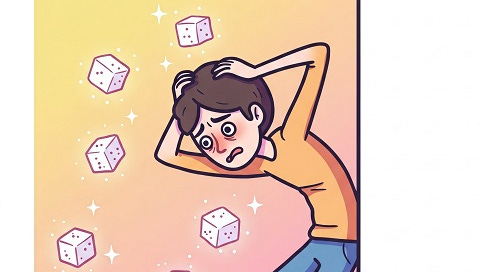Why are some people with diabetes "reluctant to disclose?"
Well, you might be too if you had a stigmatized condition.
Note that disclosure is a personal choice based on the situation—people with T1D have the right to choose when and how they disclose their condition.
There are limitations to this. Case in point my previous post about employment discrimination and legal challenges regarding pilot licensing and diabetes.
But why would people with T1D do that? Why hide it? Let's dig into it:
Misconceptions and Judgement Fears
This is probably the biggest reason.
There is a misconception that T1D is caused by lifestyle choices as it’s confused with T2D and this is a major source of stigma.
Imagine being blamed and/or judged for a condition that is in no way your fault. Placing blame on people with T2D is also problematic, as there may be genetic or complex reasons for it.
People want a cause-effect. People want to think that it was caused by something, even though there is no cause of T1D beyond the autoimmune destruction of insulin-producing beta cells in the pancreas.
I know that’s too complicated. It’s easier to judge, blame and shame with unrealistic expectations.
Imagine being judged on what you can or can't eat—unwanted comments on your food choices, even when carefully managing a chronic condition.
How about we lose the blame and shame altogether? Yes, for both T1Ds AND T2Ds. Nobody asked for the condition. And there are all kinds of reasons why someone ends up with diabetes.
Finding fault is naturally human, but it’s nobody’s fault.
I’ll say it again: It’s not your fault if you have diabetes.
And then there's the blood sugar monitoring and/or injecting insulin in public situation. This can draw unwanted attention. I would like to think it doesn't affect me, but it does.
Some social settings bring this on as well. It could be default exclusion from a social activity or just being treated differently because of T1D.
Attack of the sugar cubes!
Previous Experiences with Stigma
If you've had negative experiences in the past on disclosing T1D, is it any surprise you might reconsider? People judge. People have their first impressions.
No wonder there might be a reluctance to go and tell it on the mountain.
Experiences with stigma tend to build up over time and influence the future.
Employment Discrimination
Not surprisingly, some people with T1D have experienced discrimination in the workplace. This is so common to the point of being normalized. As in my previous post Coming out of the Closet, being denied jobs or promotions could happen if you tell the world you have T1D.
But it could be illegal. Know your rights.
Emotional Burden
It's emotionally draining to have to explain T1D, not to mention feeling obligated to correct misconceptions when they constantly arise.
That’s why Time in Range exists! To be a reliable source in the noise.
Some people with T1D might also consider their diabetes to be a burden on others, and are less likely to reach out when they need support. Even further, shame and embarrassment about having T1D and the reality of managing and monitoring a condition 24/7 is an immense burden—a full-time job we never asked for—but hey, any time spent managing and monitoring your health is worth it.
Part of this is a fear of being labelled. Who would want to be called a "diabetic?" Nobody I know. Think of it this way—people who have diabetes can call themselves whatever they want. They may even have internalized the stigma and/or call themselves "diabetic." But people who do not live with the condition, especially those who work in healthcare and deal with people who happen to have T1D every day, may want to be more careful about their language—especially around kids and teens, who are forming their views of the world and may not know how to express themselves and their journey with diabetes.
It's up to the person with diabetes if they prefer to keep their condition private.
Thanks for reading!
It would be fabulous if you became a paid subscriber to support my writing. Did I mention I’m writing a book? Well, not right this second while I’m typing this message. I meant I’m also writing a book along with this weekly substack.
It’s a way to keep me thinking about this stuff and writing.






